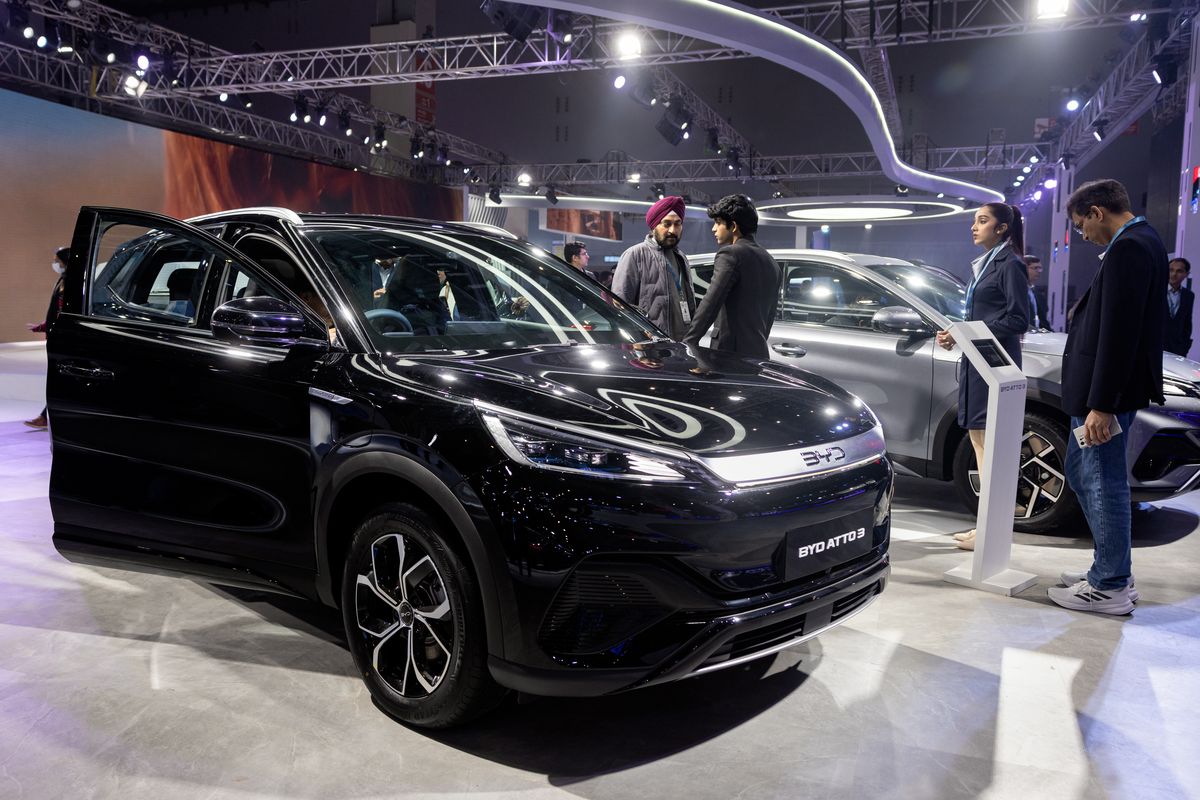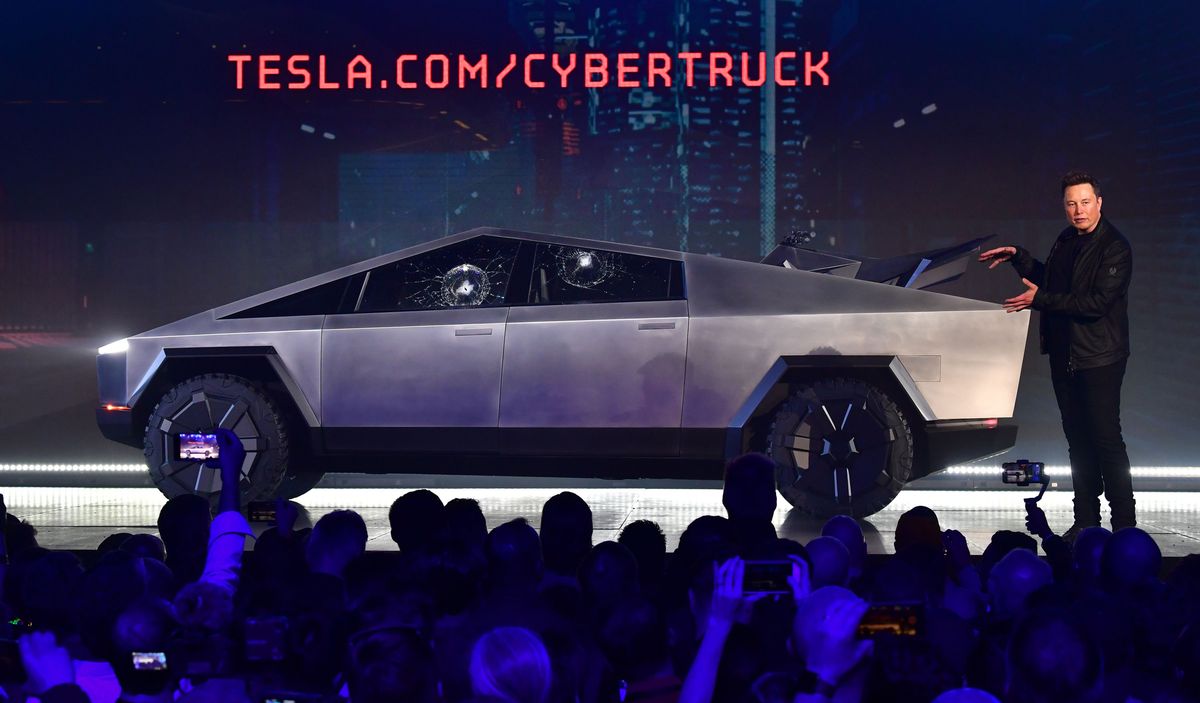Why Chinese EVs are displacing Teslas
Cars of the Chinese manufacturing conglomerate BYD are displayed at the Bharat Mobility Expo on Friday in New Delhi. (Elke Scholiers)
For about a decade, Tesla has been the world’s biggest EV producer, making its luxury vehicles the most ubiquitous electric cars on the road.
But now a different type of car, made in China and selling for as little as $10,000, is vying for the top spot. China’s BYD, which makes more than a dozen models of all-electric sedans, SUVs and minivans, built more electric cars than Tesla last year, the first time it has done so.
BYD’s rise is a sign of the growing dominance of Chinese electric car companies, which have benefited from generous government subsidies, China’s focus on battery manufacturing and mining, and a state-backed push to build the world’s biggest network of charging stations.
That has implications for the climate. Lower prices make EVs accessible to more people, accelerating the global transition from gas to electric vehicles. BYD sells its cars mostly in China, the world’s biggest car market, but it’s also trying to expand abroad.
It may also have human rights implications. The U.S. Labor Department, Human Rights Watch and news outlets, including the Washington Post, have reported links between forced labor and Chinese materials and parts used to make EVs, including by U.S. companies.
Just don’t expect to find a BYD car in the United States anytime soon: The Biden administration imposed 100% tariffs on Chinese EVs last year to lock out competitors.
From luxury to everyday car
Tesla and BYD build EVs for two opposite ends of the car market. Tesla started out as a luxury brand. Even today, its cheapest car – the base version of the Model 3 sedan – sells for $44,130. BYD is geared toward the cheap end of the market. Its Seagull sedan, one of the best-selling cars in China, costs about $10,000.
These affordable, widespread EVs are expected to outsell gas cars in China for the first time this year. As combustion engine cars and trucks dwindle, China’s state-backed oil company Sinopec predicts the country’s oil demand will peak within two years and then start to fall, dragging planet-warming greenhouse emissions down with it.
“Tesla competes for the market with BMW, Mercedes, etc.,” said John Helveston, an engineering professor at George Washington University who studies the Chinese EV industry. “BYD, on the other hand, is the Toyota of EVs.”
Although BYD’s cars are cheaper than Tesla’s, industry experts say the Chinese cars are of similar or better quality.
“It’s not like, ‘Oh, my God, that’s a cheap Chinese car. I would never want to ride it if I could afford an expensive German car,’ ” said Gernot Wagner, a climate economist at Columbia Business School. “No, not at all. It’s just a much better vehicle” than western EVs.
The companies also target different parts of the world. Tesla is the top EV seller in the United States and Europe, but it has slipped down the rankings in China. BYD sells three-quarters of its cars within China, according to company disclosures. But it is starting to expand into regions such as Southeast Asia, the Middle East and South America, and Helveston said BYD is better suited than Tesla to go after these markets.
“There is not a single attractive, affordable (all-electric car) made in the U.S. that would stand a chance against a Chinese-made one in a developing market,” he said.
Meanwhile, the United States and the European Union have created tariff barriers to keep out Chinese competitors. These policies have restricted car buyers in the Western world to more-expensive EV options.
The United States, which has some of the least efficient gas-powered cars on Earth, is lagging behind Europe and China on going electric, according to the International Energy Agency. Only about a tenth of cars sold in the country are electric, partly because of high prices and a slow build-out of EV chargers, and financial analysts predict that U.S. oil demand will continue to grow for a decade.
“If the U.S. doesn’t course-correct soon and start prioritizing the design and manufacture of affordable battery electric vehicles, we’re very quickly going to become an automotive backwater, relegated to large gas-guzzling SUVs and pickups only made for the North American market with no global presence,” Helveston said.

